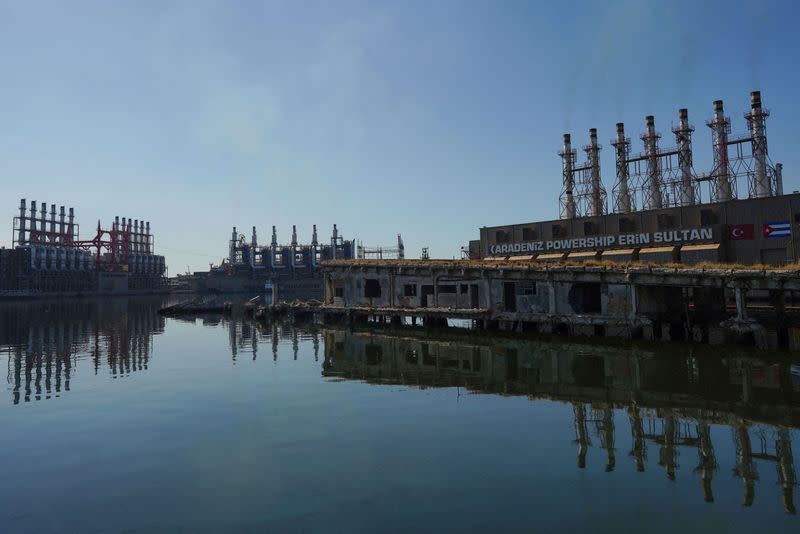Cuba turns off some public lighting as energy crisis worsens
By Nelson Acosta and Marc Frank
HAVANA (Reuters) - Cuba has switched off nearly three-quarters of public lighting during peak hours to cope with a growing energy shortage, state media reported on Tuesday, as hopes to reverse a deepening economic crisis dim.
The blackouts, which disrupt daily life and the economy, have plagued the Communist-run country for several years but have worsened in recent months due to a lack of fuel and the need to maintain decrepit infrastructure.
Minister of Energy and Mines Vicente de la O Levy told a council of ministers meeting the measure was one of many that included shuttering thousands of state services and shifting production to lessen the blackouts roiling the country, according to state media.
The import-dependent country has been mired in a deepening economic crisis that has seen gross domestic product decline 10% since 2019.
The government largely blames Trump-era U.S. sanctions targeting foreign currency earners tourism, medical services and remittances and compounded by the pandemic, rising shipping costs and faltering efforts to restructure a centralized and state dominated economy.
The shortage of foreign exchange to import food, medicine, fuel and other essentials appears to have worsened so far this year, official figures showed.
De la O Levy said last month that Cuba has only received 46% of the planned fuel imports, causing long blackouts across the land, with the exception of the capital Havana.
A phone survey of five of 14 provinces indicated residents were enduring daily six to 12 hour blackouts, broken up into two tranches.
Yurkina Gracial, a 40-year-old state employee in eastern-most Guantanamo province said by phone “the power goes out for four hours twice a day and it is unbearable because of the heat."
At the other end of the Caribbean island, in Pinar del Rio province, restaurant owner Jaime Carrillo said power outages were running up to eight hours per day.
"Blackouts always complicate your daily work," he said.
“For example, liquids and meats suffer from defrosting in refrigerators.”
(Reporting by Marc Frank and Nelson Acosta; Editing by Marguerita Choy)



